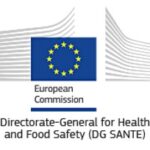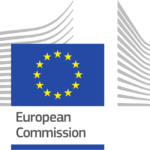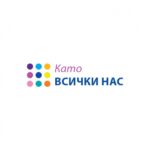 In the context of COVID-19 pandemic and launching of the ‘COVID-19 Clinical Management Support System’, DG SANTE is organising a series of webinars to support clinicians and other healthcare professionals at the frontline who treat the patients with COVID-19. We would like to invite you and any other colleague or healthcare professional of your hospital that might be interested, to the 6th Webinar: “COVID-19: Endocrine conditions with increased risk” that will take place on Tuesday 12 May, from 18:00 to 19:00. It will feature Prof. Alberto Pereira, Prof. Elco de Koning and Prof. Wiebke Arlt. For more information click here.
In the context of COVID-19 pandemic and launching of the ‘COVID-19 Clinical Management Support System’, DG SANTE is organising a series of webinars to support clinicians and other healthcare professionals at the frontline who treat the patients with COVID-19. We would like to invite you and any other colleague or healthcare professional of your hospital that might be interested, to the 6th Webinar: “COVID-19: Endocrine conditions with increased risk” that will take place on Tuesday 12 May, from 18:00 to 19:00. It will feature Prof. Alberto Pereira, Prof. Elco de Koning and Prof. Wiebke Arlt. For more information click here.
Featured posts
 The collection of presentations and posters from the 10th National Conference for Rare Diseases and Orphan Drugs has been published. You can find the collection attached as a supplement in the journal Rare Diseases and Orphan Drugs and in it you will see the presentations of all speakers, as well as materials from the poster sessions. Follow the link to access the collection.
The collection of presentations and posters from the 10th National Conference for Rare Diseases and Orphan Drugs has been published. You can find the collection attached as a supplement in the journal Rare Diseases and Orphan Drugs and in it you will see the presentations of all speakers, as well as materials from the poster sessions. Follow the link to access the collection.
 In the context of COVID-19 pandemic and launching of the ‘COVID-19 Clinical Management Support System’, DG SANTE is organising a series of webinars to support clinicians and other healthcare professionals at the frontline who treat the patients with COVID-19. We would like to invite you and any other colleague or healthcare professional of your hospital that might be interested, to the 4th Webinar: “COVID-19 in patients with rare diseases of the respiratory system” that will take place on Thursday 30 April, from 17:00 to 18:30. It will feature Thomas Wagner, Isabel Fajak, Michael Kreuther and more. For more information click here.
In the context of COVID-19 pandemic and launching of the ‘COVID-19 Clinical Management Support System’, DG SANTE is organising a series of webinars to support clinicians and other healthcare professionals at the frontline who treat the patients with COVID-19. We would like to invite you and any other colleague or healthcare professional of your hospital that might be interested, to the 4th Webinar: “COVID-19 in patients with rare diseases of the respiratory system” that will take place on Thursday 30 April, from 17:00 to 18:30. It will feature Thomas Wagner, Isabel Fajak, Michael Kreuther and more. For more information click here.
 In the context of COVID-19 pandemic and launching of the ‘COVID-19 Clinical Management Support System’, DG SANTE is organising a series of webinars to support clinicians and other healthcare professionals at the frontline who treat the patients with COVID-19. We would like to invite you and any other colleague or healthcare professional of your hospital that might be interested, to the 3rd Webinar: ‘COVID-19 and anti-epileptic drugs’ that will take place on Monday 27 April, from 17:00 to 18:30. It will chaired by some of the finest experts in epilepsy in the EU – Prof Alexis Arzimanoglou, Prof. Emilio Perucca, Prof. Cecilie Landmark and Prof. Eugen Trinka. For more information click here.
In the context of COVID-19 pandemic and launching of the ‘COVID-19 Clinical Management Support System’, DG SANTE is organising a series of webinars to support clinicians and other healthcare professionals at the frontline who treat the patients with COVID-19. We would like to invite you and any other colleague or healthcare professional of your hospital that might be interested, to the 3rd Webinar: ‘COVID-19 and anti-epileptic drugs’ that will take place on Monday 27 April, from 17:00 to 18:30. It will chaired by some of the finest experts in epilepsy in the EU – Prof Alexis Arzimanoglou, Prof. Emilio Perucca, Prof. Cecilie Landmark and Prof. Eugen Trinka. For more information click here.
 This year, once again, we celebrate April 17 – World Hemophilia Day. Days before Easter, the campaign is already actively running online in the form of sharing helpful infographics and videos under the motto “Get involved too!”. A number of public figures have already recorded videos at home, sharing important information about the disease and about the patients with hemophilia. They call upon others like them to join as participants for the campaign. Each of us is invited to become involved in the distribution of information about the disease, the needs and the problems of the patients, as well as to record a short video to encourage society to be tolerant and cohesive, especially in these difficult times of social exclusion.
This year, once again, we celebrate April 17 – World Hemophilia Day. Days before Easter, the campaign is already actively running online in the form of sharing helpful infographics and videos under the motto “Get involved too!”. A number of public figures have already recorded videos at home, sharing important information about the disease and about the patients with hemophilia. They call upon others like them to join as participants for the campaign. Each of us is invited to become involved in the distribution of information about the disease, the needs and the problems of the patients, as well as to record a short video to encourage society to be tolerant and cohesive, especially in these difficult times of social exclusion.
 In the context of the fight against the coronavirus pandemic, the European Commission launched the COVID-19 Clinical Management Support System (CMSS). The aim is to support doctors, nurses, and other healthcare professionals in hospitals that are currently dealing with COVID-19 cases all over the EU, UK and the EEA countries. This system allows for the professionals to communicate easily with colleagues, exchange knowledge, discuss cases and improve training, namely via webinars. For more information click here.
In the context of the fight against the coronavirus pandemic, the European Commission launched the COVID-19 Clinical Management Support System (CMSS). The aim is to support doctors, nurses, and other healthcare professionals in hospitals that are currently dealing with COVID-19 cases all over the EU, UK and the EEA countries. This system allows for the professionals to communicate easily with colleagues, exchange knowledge, discuss cases and improve training, namely via webinars. For more information click here.
Survey on the impact of COVID-19 on rare disease patients and their families in Bulgaria
 The Information Center for Rare Diseases and Orphan Drugs (ICRDOD) is conducting a survey on the impact of COVID-19 on rare disease patients and their families in Bulgaria. The survey aims to examine the experiences and difficulties of patients with rare diseases and their families, related to COVID-19 and the medico-social situation in our country. It contains 11 questions and takes no more than 15 minutes to complete. The survey is anonymous and the answers will be used only for the purposes of this survey. If you would like to participate in our survey you can fill it out here.
The Information Center for Rare Diseases and Orphan Drugs (ICRDOD) is conducting a survey on the impact of COVID-19 on rare disease patients and their families in Bulgaria. The survey aims to examine the experiences and difficulties of patients with rare diseases and their families, related to COVID-19 and the medico-social situation in our country. It contains 11 questions and takes no more than 15 minutes to complete. The survey is anonymous and the answers will be used only for the purposes of this survey. If you would like to participate in our survey you can fill it out here.
 X-linked hypophosphatemia (XLH) is a rare disease characterized by low phosphate levels. Scientific evidence points to a link between hypophosphatemia and obesity in general population. The aim of our longitudinal observational study was to investigate the prevalence of obesity and associated factors in a large cohort of children with XLH. We studied 172 XLH-children 5-20 years of age (113 girls/59 boys). Anthropometric parameters (weight, height, and BMI) were collected at birth and during follow-up at mean ages of 5.3, 8.2, 11.3, and 15.9 years (groups 1, 2, 3, and 4, respectively). In each group, subjects were classified based on International Obesity Taskforce (IOTF) cut off values of BMI for age and sex as overweight or obese (IOTF 25-30 or ≥30 kg/m2, respectively). One out of three of XLH-children have phenotypically unfavourable metabolic profile expressed as increased prevalence of overweight or obesity in comparison to general population. Both the lack of XLH family history and the duration of treatment increase the risk of higher BMI-IOTF. BMI should be carefully monitored in children, and later in adults, with XLH. For more information click here.
X-linked hypophosphatemia (XLH) is a rare disease characterized by low phosphate levels. Scientific evidence points to a link between hypophosphatemia and obesity in general population. The aim of our longitudinal observational study was to investigate the prevalence of obesity and associated factors in a large cohort of children with XLH. We studied 172 XLH-children 5-20 years of age (113 girls/59 boys). Anthropometric parameters (weight, height, and BMI) were collected at birth and during follow-up at mean ages of 5.3, 8.2, 11.3, and 15.9 years (groups 1, 2, 3, and 4, respectively). In each group, subjects were classified based on International Obesity Taskforce (IOTF) cut off values of BMI for age and sex as overweight or obese (IOTF 25-30 or ≥30 kg/m2, respectively). One out of three of XLH-children have phenotypically unfavourable metabolic profile expressed as increased prevalence of overweight or obesity in comparison to general population. Both the lack of XLH family history and the duration of treatment increase the risk of higher BMI-IOTF. BMI should be carefully monitored in children, and later in adults, with XLH. For more information click here.
 There are more than 6000 heterogeneous rare diseases and little is known about shared experiences of affected individuals in everyday life and healthcare. Objective of this study was to explore perceived burden of patients with rare chronic diseases and identify commonalities and differences in the experiences of patients with four heterogeneous conditions. In four separate and diagnostically homogeneous focus groups, we asked patients about the perceived burden of living with their rare disease. The focus groups took place at a university medical centre in Germany. We identified five main themes: medical problems, psychological burden, problems with the healthcare system, constraints and interpersonal problems. Despite clinical heterogeneity of rare diseases, affected individuals have many common experiences. Some of these experiences may resemble the burden of living with a chronic disease. However, patients reported aspects, which seem to be specific for rare chronic diseases. Generic interventions targeting shared burdens among patients with different diseases could provide adequate treatment in light of finite healthcare resources. For more information click here.
There are more than 6000 heterogeneous rare diseases and little is known about shared experiences of affected individuals in everyday life and healthcare. Objective of this study was to explore perceived burden of patients with rare chronic diseases and identify commonalities and differences in the experiences of patients with four heterogeneous conditions. In four separate and diagnostically homogeneous focus groups, we asked patients about the perceived burden of living with their rare disease. The focus groups took place at a university medical centre in Germany. We identified five main themes: medical problems, psychological burden, problems with the healthcare system, constraints and interpersonal problems. Despite clinical heterogeneity of rare diseases, affected individuals have many common experiences. Some of these experiences may resemble the burden of living with a chronic disease. However, patients reported aspects, which seem to be specific for rare chronic diseases. Generic interventions targeting shared burdens among patients with different diseases could provide adequate treatment in light of finite healthcare resources. For more information click here.
The media campaign “Like All of Us” aims to inform the public about rare diseases by answering the most frequently asked questions and by telling personal stories of the people affected by them.
aims to inform the public about rare diseases by answering the most frequently asked questions and by telling personal stories of the people affected by them.
What are rare diseases? Those are diseases that affect less than 1 in 2 000 people. It is estimated that about 6% of the Bulgarian population suffer from rare diseases. With the advancement of medicine and innovative technologies, the opportunities for early diagnosis and treatment of people affected by rare diseases are significantly increased, which helps them living a fulfilling life, create families and have successful personal and professional realization in the society.
In Bulgaria there are only 22 people with Gaucher disease – a hereditary disease in which the body cannot break down the lipid glucocerebroside. In patients, there is an accumulation of the lipid in the liver, spleen, bone marrow and nervous system, which interferes with their normal functioning. The research work of many scientists around the world has led to the creation of enzyme replacement therapy, as a result of which people with Gaucher disease can have now an independent and fulfilling life. Take a look at the story of one patient with Gaucher disease in Bulgaria, Christian Dimitrov and find out more about this rare disease.
Thalassemia is a hereditary disease that affects hemoglobin synthesis. Hemoglobin is a part of the red blood cells and its main function is to carry oxygen to the body. A person with this disease produces “defective” hemoglobin, which makes red blood cells (erythrocytes) unstable and they are destroyed faster than usual. Women with the heavier forms of thalassemia have not been able to have children until recently due to the damage of the disease to the body. Now, thanks to the development of medicine, women with this disease can become pregnant and have healthy children. Learn about the story of Maria Ermakova from Stara Zagora, who was diagnosed with beta-thalassemia major, but that did not stop her from dreaming and starting a family.
Haemophilia is a disease that is characterized with impaired blood clotting. Due to the lack of a blood clotting factor, it takes longer for the bleedings to stop, which makes even the slightest scratches or injuries dangerous. This rare disease mainly affects men with a frequency of 1 in every 5 000. Innovations in medical science have led to the creation of treatments that allow patients to live actively and even exercise. Find out more about haemophilia from the story of Dimitar Petrov and Boyan Boyanov, who is also one of the first diagnosed patients in Bulgaria.
The media campaign “Like All of Us” is organized by the Institute for Rare Diseases, the National Alliance of People with Rare Diseases and the Association of the Research-Based Pharmaceutical Manufacturers in Bulgaria (ARPharM). For more information: www.raredis.org
